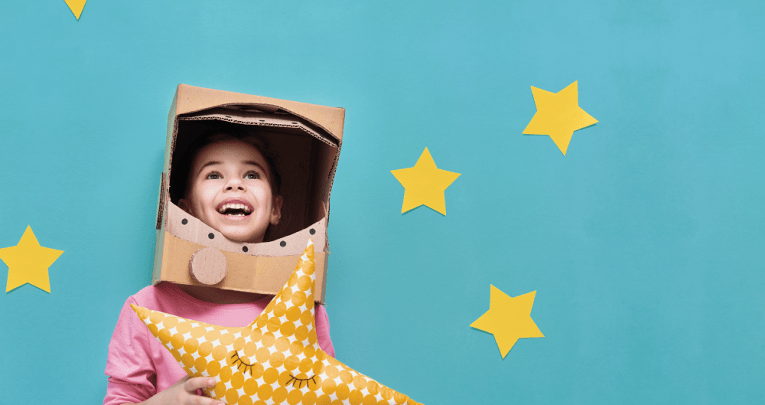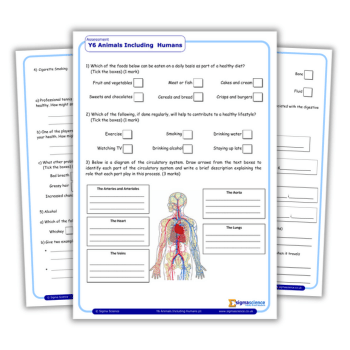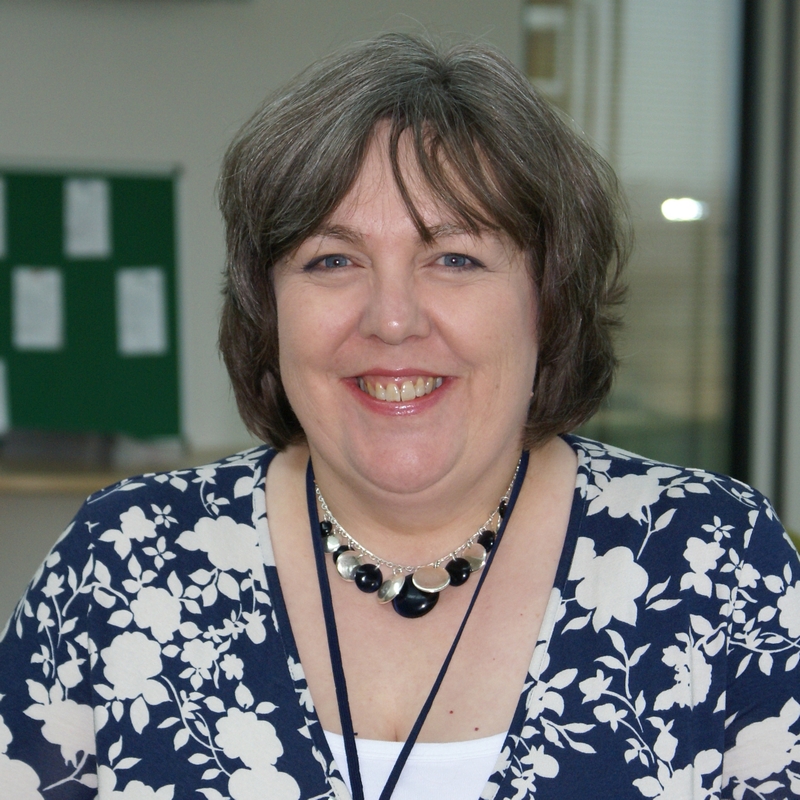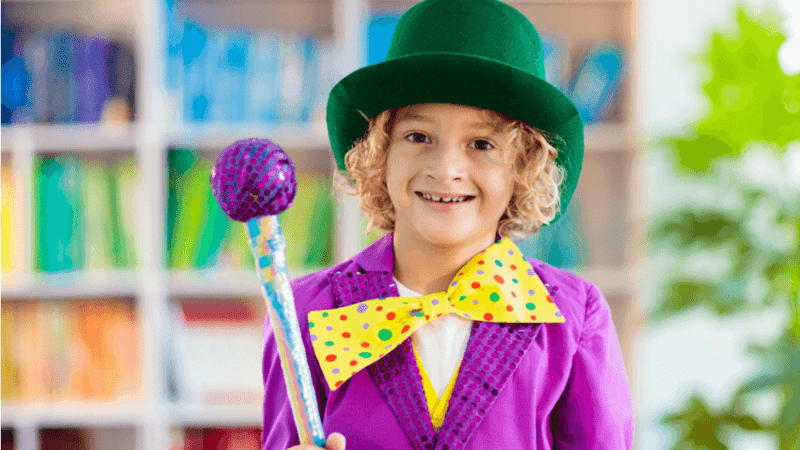5 imaginary scenarios to add sparkle to your science lessons

Having fun and learning are not mutually exclusive, says Deborah Herridge…

Have you ever told a lie to a child? A group of children? A whole school? Well I have, and continue to.
Except they aren’t really lies – just little stories to set up scenarios for children to investigate.
And my students know this; they buy into the deception, suspend their disbelief and play along.
After all, I must be the unluckiest science teacher alive; my house floods virtually every year and I still haven’t worked out how to mop up the water, my tent still leaks, I’ve lost every pet I own in the dark, I find it impossible to keep any drink hotter than slightly tepid, aliens are forever landing in my garden and I’ve lost count of the number of email requests from slightly dodgy ‘companies’ wanting me to do some test or other on their products.
So, today I’m inviting you to join me in my fantasy life and discover some little lies that will add a bit of sparkle to your science.
1 | Entering their world
There’s a difference between ‘real world’ science and ‘school’ science, although I can think of a couple of things they might share – curiosity and imagination. Oh, and maybe lab coats – about which more later.
However, sometimes I think science fantasy (which I’ll talk about as exploratory rather than necessarily factual) is presented in just one dimension, that of the ability of science to solve problems.
Now, there’s nothing wrong with this. Some of the best lessons are built around problem-solving – think of all of those ‘what makes the best rug/cat basket/handwarmer…’ questions. But for me, it can be a very adult way of seeing and understanding the world.
It suggests limited options and solutions and, in my experience, starts from teacher-centred rather than child-led questions (well hey, we’ve a curriculum to cover y’know!).
I’m often reminded of the pilot in The Little Prince who as a child draws a picture of a boa constrictor digesting an elephant. The adults he shows his drawing to, without exception, see that he has drawn a hat, so he has to explain it to them.
“Grown-ups,” he says, “never understand anything by themselves, and it is tiresome for children to be always and forever explaining things to them.” Do adults and children see the world differently? Maybe we should try and enter into their world a little more.
2 | Play make-believe
If you’d asked me 10 years ago whether I thought we should dress up primary children in lab coats for science lessons I would have wrinkled my nose and muttered something about the ‘draw a scientist’ test.
You know the one – children who have been asked to draw a scientist often sketch a white, middle-aged man in a lab coat with glasses and rather alarming hair.
I would have said something pompous about how all children are scientists and we don’t need this kind of stereotyping gimmickry to foster a love of science. Yes, I really was a self-important so-and-so back then.
And now? Maybe I realise that having fun with the curriculum doesn’t mean children aren’t learning.
A white coat does have stereotypical implications, yes, but it’s also a vehicle for focusing attention, encouraging a set of scientific behaviours triggered by the clothing, and connecting with parents and guardians in the home.
What child wouldn’t want to talk about ‘being a scientist’ or a CSI in school? So slap on those white coats and let’s pretend.
Is this just ‘mantle of the expert?’, I hear you ask. Not quite, and I speak as one of the lucky children who got to sample the teaching of mantle pioneer Dorothy Heathcote.
But it is about entering into a context where the science learning has a purpose beyond the recitation of facts or the naming of plants. So what might your fantasy contexts be? Let me share some of my favourites with you.
3 | More murders than Midsomer
Schools can be dangerous places to be around. How many times have you come into school to be faced with a gaffer tape outline of a corpse on the floor? Oh no, someone has killed the caretaker – again! But what a great vehicle for learning.
Ideal for systematic scientific method – think about testing the ‘white powder’ found near the body, what could it be?
Superb for observation; sketch the evidence, take and compare fingerprints of the suspects to those found at the scene.
Fabulous for finding patterns; what is the link between how blood looks when it is splattered or dripped from various heights? Can we work out the height of the assailant from the length of the stride?
And, ooh – is that a soil sample I spy? How can we find out where that came from? It may be that we’re moving towards a single answer here, which is inevitably ‘whodunnit’, but the journey is one of many twists and turns.
4 | Life on Mars
Could life survive on Mars, or any other planet, moon or isolated place? Just what do humans need to survive? Dare to turn your classroom into another planet, desert island or life raft, cast adrift on an unfriendly ocean. How much food do you have? How much do you need to survive? How do you keep warm? How do you remain sane?
Be careful with this one. I once feared for my career after reducing a whole year group to tears after telling them that they needed to be in quarantine because of a highly infectious strain of ‘Blunkett’s disease’ that had been found outside of school.
For their own safety they had to remain in the classroom that night. Not my greatest achievement – sometimes the lie can seem a bit too real!
5 | Try time travel
What was life like for science’s pioneers? Can we follow in their footsteps and recreate their investigations? Why was Galileo given such a hard time? What made Isaac Newton stick a needle in his eye?
The history of science is a treasure trove of fascinating stories that will entrance and enthuse children, inviting them into a world of magical discovery. Thankfully, our curriculum recognises that children should have some knowledge of the lives of scientists and this is an ideal opportunity to investigate this.
Try being Volta and make a voltaic pile, recreate a Faraday motor or torch or play the ‘what if…?’ game and reinvent history. What if antibiotics had never been discovered? What if cars ran on milk, not petrol? What if we all bought into the idea of ‘play pretend’ in science, at least once in a while?
Deborah Herridge is an author of Pearson’s ‘Science Bug’ programme and ‘Progress and Assess’ assessment tasks. She is also a partner in Primarily Science, delivering primary science CPD nationally and internationally. Find her at primarilyscience.co.uk and follow her on Twitter at @deborahscience.







